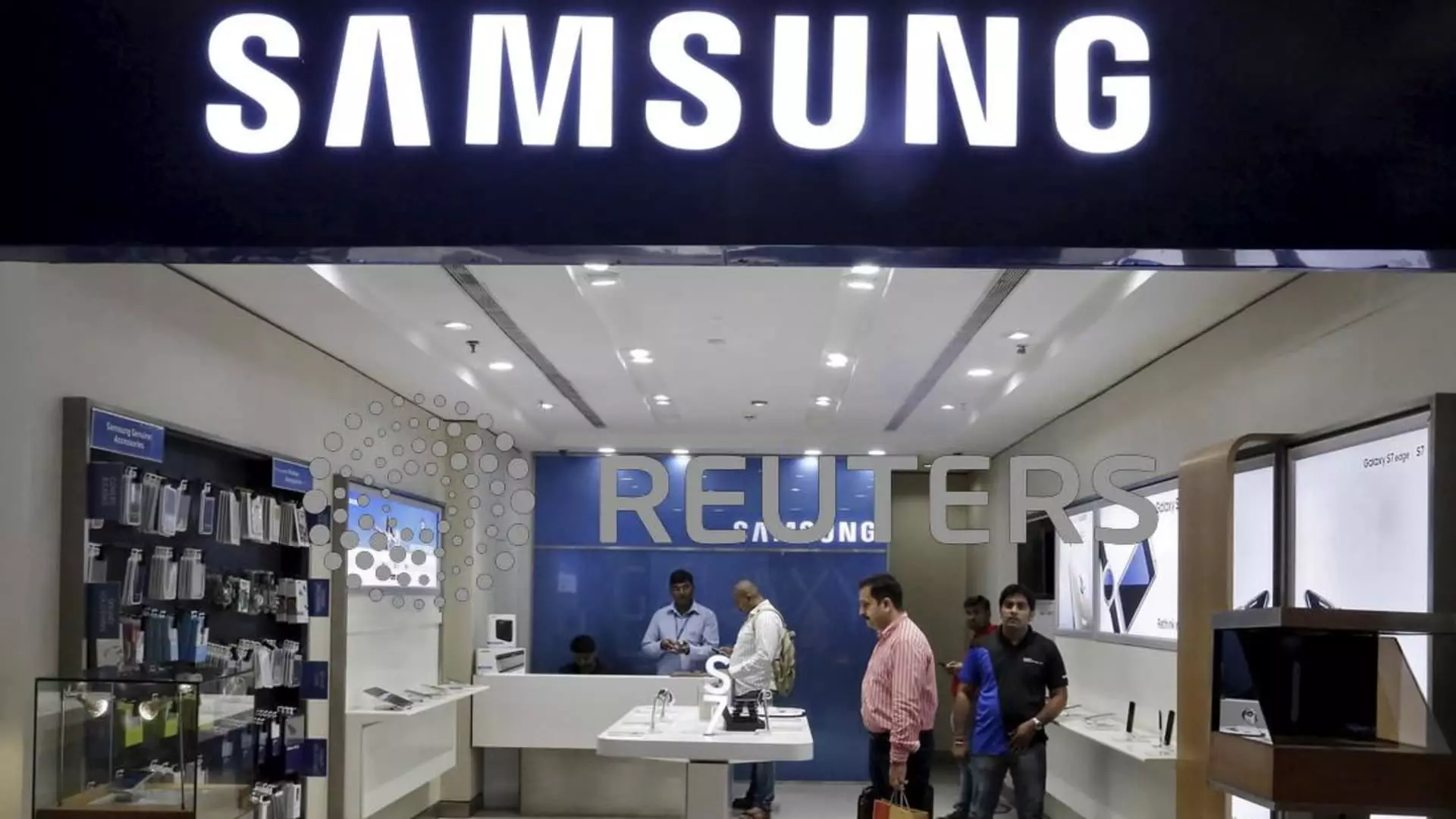On Thursday, Samsung Electronics unveiled its financial results for the third quarter, revealing sales and operating profits that slightly exceeded the company’s own projections. However, the results were not without their challenges, particularly in the semiconductor sector, which saw a significant decline in profits compared to the previous quarter. The operating profit for Samsung’s semiconductor division stood at 3.86 trillion won (approximately $2.8 billion), reflecting a stark 40% drop from the second quarter due to several influencing factors.
Despite some positive indicators, such as strong demand for memory chips in artificial intelligence and conventional server applications, Samsung’s semiconductor outcomes were marred by adverse conditions. The company noted that “inventory adjustments negatively impacted mobile demand,” hinting at a systemic issue within their supply chain or market positioning. Additionally, the escalating availability of older-generation products from manufacturers in China further complicated the scenario, reducing competitive pricing power for Samsung’s more advanced offerings.
Samsung’s continued dominance in the memory chip sector, where it serves critical components for devices—from laptops to powerful servers—is evidently facing headwinds. The global tech landscape is shifting, and while Samsung remains a leader, it grapples with the delicate balance of maintaining its market position amidst changing consumer behaviors and technological advancements.
Samsung also highlighted that the appetite for high-performance chips, especially linked to artificial intelligence, is anticipated to grow going forward. Although there was a noted underperformance in mobile and personal computer segments, the company expressed optimism regarding a rebound in advanced products supported by AI investment. This aligns with the broader sentiment in the industry, where the integration of AI technologies is reshaping demand scenarios considerably.
Samsung’s forecast underlines a broader strategic pivot necessary for sustaining its growth trajectory in this rapidly evolving market. The Korean tech giant’s commitment to adapting to these market transitions reflects its proactive stance on seizing opportunities emerging from AI developments.
The reception of these reports was met with caution in the market, as exemplified by a drastic 24.71% decline in Samsung Electronics’ share price within the year. Despite the improvements relative to previous guidance—79.1 trillion won in revenue and 9.18 trillion won in operating profit—analysts had forecasted a substantially higher operating profit figure of 11.456 trillion won. The company’s Vice Chairman Jun Young-hyun, newly appointed to lead the device solutions division, issued an unusual apology following the news, indicative of the weight these results bear on investor confidence.
Looking ahead, Samsung is banking on the anticipated sustained demand for advanced chipsets to drive growth in the upcoming year. Server demand is expected to hold strong, fueled by consistent investments from tech companies. The success of these strategies will be critical as Samsung navigates a landscape marked by intense competition and rapid technological evolution. Ultimately, the company’s ability to refine its product offerings and address market demands will be pivotal in shaping its prospects in the quarters to come.

